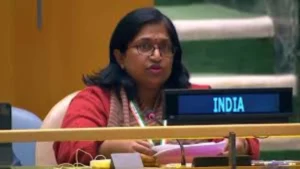On November 18, 2023, Justice Sanjiv Khanna was sworn in as the 51st Chief Justice of India. Justice Khanna’s appointment marks a significant milestone in the Indian judiciary, with many seeing it as a crucial moment for judicial reforms and strengthening the rule of law.
A respected judge with decades of experience, Justice Khanna has been a prominent figure in India’s legal landscape. Before being appointed to the Supreme Court of India, he served as a judge in the Delhi High Court, where he became known for his meticulous legal analysis, progressive rulings, and commitment to justice. As the Chief Justice of India, Justice Khanna will oversee cases of national importance and lead the judiciary in upholding India’s constitutional values.
A Legacy of Landmark Judgments
Justice Khanna’s career has been defined by his involvement in numerous landmark rulings, shaping the course of Indian law on several fronts. Here are some of the key cases he’s been part of:
Abrogation of Article 370 (2023)
Justice Khanna was a crucial member of the five-judge bench that upheld the abrogation of Article 370, which revoked the special status of Jammu and Kashmir. In his opinion, he explained that Article 370 was an element of asymmetric federalism, and its removal did not infringe upon India’s federal structure. This historic ruling marked a pivotal moment in the country’s constitutional history.
Electoral Bonds Case (2024)
Justice Khanna was also part of the bench that declared electoral bonds unconstitutional. In this landmark ruling, he stressed the importance of transparency in political donations, pointing out that donor privacy does not extend to banking channels. His judgment emphasized that electoral bonds undermine the principles of electoral transparency and accountability.
MUST READ: S. Jaishankar Explains Why India Isn’t Anxious About Trump’s Election Victory
Electronic Voting Machines (EVM) and VVPAT Verification (2024)
As part of a Division Bench, Justice Khanna dismissed a plea seeking 100% VVPAT verification for Electronic Voting Machines (EVMs), reinforcing the existing framework that has been designed to ensure “mischief-free” counting of votes. His judgment reassured the public about the integrity of India’s electoral process.
Interim Bail for Delhi CM Arvind Kejriwal (2024)
In another significant decision earlier this year, Justice Khanna was part of the bench that granted interim bail to Delhi Chief Minister Arvind Kejriwal, allowing him to campaign in the 2024 Lok Sabha elections. This decision underscored Justice Khanna’s balanced approach to justice, weighing both legal considerations and practical implications.
As Chief Justice of India, Justice Khanna’s role will be pivotal in overseeing the functioning of the Supreme Court, ensuring the smooth delivery of justice, and addressing the growing concerns regarding judicial delays. He has already expressed his commitment to strengthening the judiciary’s role in national development, aligning foreign policy with national growth, and ensuring that the justice system remains independent and efficient.
In his own words, Justice Khanna emphasized the importance of judicial reforms that will not only focus on national security but also contribute to India’s aspirations for development. His tenure is expected to bring greater transparency, accountability, and judicial efficiency to India’s legal system.
A New Era for the Indian Judiciary
Justice Sanjiv Khanna’s appointment is seen as an opportunity to bring fresh perspectives to the Indian judiciary, with a focus on enhancing the independence of the judiciary and ensuring that it continues to serve as the bedrock of democracy in India. With his legal expertise and commitment to justice, Justice Khanna’s leadership is expected to be a transformative force in shaping the future of the Indian Supreme Court.
ALSO READ: Justice Sanjiv Khanna Sworn In As 51st Chief Justice Of India























